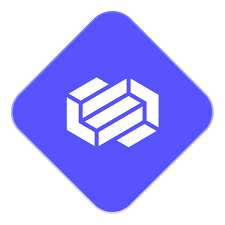In the rapidly evolving generative AI sector, customer support is a particularly hot category. This technology promises to reduce contact center costs while increasing scalability. Critics worry that AI-powered customer support might lead to wage suppression, layoffs, and more errors. However, proponents argue that generative AI will enhance, not replace, human workers, allowing them to focus on more meaningful tasks.
Jesse Zhang, co-founder of Decagon, aligns with the proponents. Alongside Ashwin Sreenivas, Zhang launched Decagon, a generative AI platform designed to automate various aspects of customer support. Despite the fierce competition from tech giants like Google and Amazon, and startups like Parloa and Cognigy, Zhang believes Decagon’s unique approach and engineering expertise offer a competitive edge.
“When we first started, the prevailing advice we received was to not pursue the customer support space, because it was too crowded,” Zhang said. “Ultimately, the thing that worked for us was to aggressively prioritize what customers wanted and maintain laser focus on what customers would get value from. That’s the difference between a real business and a flashy AI demo.”
Both Zhang and Sreenivas bring substantial technical experience to Decagon. Zhang previously worked as a software engineer at Google and a trader at Citadel before founding Lowkey, a social gaming platform acquired by Niantic. Sreenivas was a deployment strategist at Palantir and co-founded Helia, a computer vision startup sold to Scale AI.
Advanced AI-Driven Chatbots
Decagon’s primary product is an advanced chatbot for customer support, utilizing both proprietary and third-party AI models. Companies fine-tune these bots to understand their knowledge base and historical customer interactions, providing contextually accurate responses.
“As we started building, we realized that ‘human-like bots’ entails a lot, since human agents are capable of complex reasoning, taking actions and analyzing conversations after the fact,” Zhang explained. “From talking to customers, it’s clear that while everyone wants greater operational efficiency, it cannot come at the expense of customer experience — no one likes chatbots.”
Decagon’s bots distinguish themselves by learning from past conversations and feedback. They can integrate with other applications to perform actions such as processing refunds, categorizing messages, or assisting in writing support articles. Companies using Decagon also receive analytics and control over the bots’ interactions.
“Human agents are able to analyze conversations to notice trends and find improvements,” Zhang said. “Our AI-powered analytics dashboard automatically reviews and tags customer conversations to identify themes, flag anomalies and suggest additions to their knowledge base to better address customer inquiries.”
Addressing Ethical and Quality Concerns
Acknowledging the concerns around AI reliability and ethical issues, Zhang assures that Decagon prioritizes data security and ethical AI use. “Providing customers with the necessary guardrails and monitoring for their AI agents has been important,” he said. “We optimize our models for our customers, but we do this in a way which ensures that it is impossible for any data to be inadvertently exposed to another customer. For instance, a model that generates an answer for customer A would never have any exposure to data from customer B.”
Decagon’s innovative approach has attracted high-profile clients like Eventbrite, Bilt, and Substack, helping the company reach financial stability. Esteemed investors, including Box CEO Aaron Levie, Airtable CEO Howie Liu, and Lattice CEO Jack Altman, have also backed the venture. To date, Decagon has raised $35 million through seed and Series A rounds, with participation from Andreessen Horowitz, Accel, A*, and entrepreneur Elad Gil. They are channeling the funding into product development and expanding the team in San Francisco.
Overcoming Industry Challenges
Zhang noted that customers face a key challenge in equating AI agents to previous generation chatbots, which don’t actually get the job done. “Older chatbots have saturated the customer support market and eroded consumer trust. New solutions from this generation must cut through the noise of the incumbents.”
Decagon’s forward-thinking approach aims to redefine customer support by leveraging the latest in generative AI technology, ultimately seeking to restore and elevate consumer trust in AI-driven solutions.
See also: Apple Developer Academy Expands Curriculum To Include AI Training For Students And Alumni


















